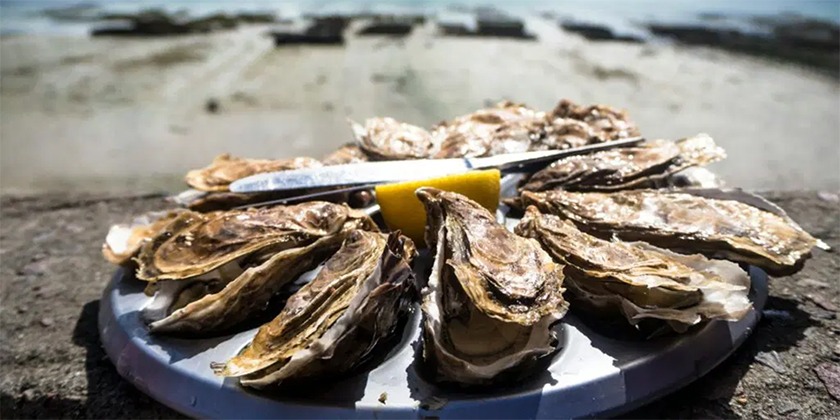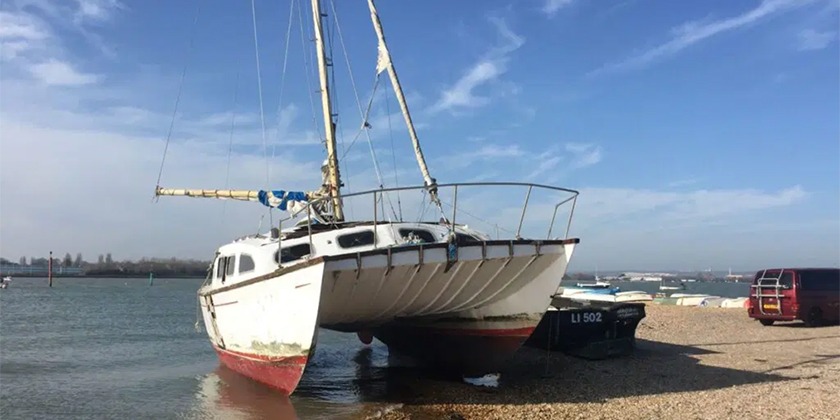British study reveals ‘disturbing level’ of fibreglass in oysters and mussels

July 9, 2024
The following story was written and published in the July 3rd edition of Marine Industry News from the UK. The following story should be of great concern to the global boat manufacturing industry – Andy Adams – Editor – Boating Industry Canada News Week Digest
A new study has revealed worrying levels of fibreglass in oysters and mussels in British waters. The research authors say it’s the first time fibreglass or glass-reinforced plastic (GRP) particles have been found entering the food chain, raising urgent environmental and health concerns.
The study, a collaborative effort from the Universities of Brighton and Portsmouth, showed that GRP, used extensively in boat manufacturing, is breaking down and contaminating coastal waters. Once considered durable and beneficial, this material is now causing unexpected harm to marine life.
The GRP particles have been detected in the soft tissues of oysters and mussels collected near an active boatyard in Chichester Harbour, a popular sailing destination in south England. Using micro Raman spectroscopy, researchers found up to 11,220 fibreglass particles per kilogram in oysters and 2,740 particles per kilogram in mussels.
Dr Corina Ciocan, principal lecturer in marine biology at the University of Brighton, said: “Our findings show a disturbing level of GRP contamination in marine life. This study is the first of its kind to document such extensive contamination in natural bivalve populations. It’s a stark reminder of the hidden dangers in our environment.”
Fibreglass, widely used in boat manufacturing since the 1960s, is notorious for its durability. However, it’s also incredibly difficult to dispose of properly, often ending up abandoned or improperly discarded. This results in tiny glass particles entering the water, especially during peak boat maintenance seasons like winter. These particles then accumulate in bivalves such as oysters and mussels, which are crucial to marine ecosystems due to their filter-feeding habits.
The study highlights the risks associated with GRP contamination. Bivalves, being stationary filter feeders, are highly susceptible to accumulating these particles, which can severely impact their health. The ingestion of GRP can interfere with their digestive systems, leading to physiological stress and even death. This affects marine life and could have significant implications for human health, given that these bivalves often end up on our plates.

”It’s a global issue, particularly for island nations with limited landfill space,” says Professor Fay Couceiro from the University of Portsmouth. “Efforts are being made to find viable disposal solutions, but more needs to be done to prevent at-sea dumping and onshore burning. We’re just starting to understand the extent of fibreglass contamination. Our study is the first to show this level of contamination in natural bivalve populations.”
The consequences of this contamination are not yet fully understood, but the potential for widespread ecological impact is significant. The study advocates for further research to understand the potential transfer up the food chain and the implications for human health.
The research highlights the urgent need for better regulation and management of GRP disposal. “We must improve public access to slipways and commercial boat maintenance facilities,” says Dr Ciocan. “Creating a better ethos around end-of-life boat management is crucial to minimise further exposure and spread of these contaminants.”
For now, the discovery serves as a wake-up call to the boating community and environmental regulators. Professor Couceiro adds: “We have to address this issue head-on to protect our marine ecosystems and ensure a healthier future for our oceans.”



























